#i read the book (or the first part of it anyway - which seemed most relevant and is the part Flint is reading) and skimmed some wiki pages
Note
Sorry to ask something somewhat related to the recent discourse, but do you have any advice to someone trying to teach themselves lit analysis or lit theory? Seems like most online advice ends at "get an English degree lol"
first of all sorry for leaving this for so long, between work and various other Demands in my life i didn’t really have the time/energy to sit down and write up a proper answer for a while. anyway: imo, what’s more important than working your way through a long list of critical theory is honing an ability to respond to a text yourself; being able to take notice of your emotional responses, being able to ask questions about what the text does and what it responds to and whether you think it succeeds or fails. questions like ‘what is the text about?’ are often too vague, and assume that critical practice is a task limited to investigating the ‘correct’ metaphysical properties of a text that we have to uncover, as well as presenting literature as wholly utilitarian (under this framework, a text becomes a vehicle for a ‘theme,’ and nothing more.) in the list below, i’ve tried to be a little more precise about the kinds of questions that can help you become a more confident + critical reader.
[disclaimer: i am not any kind of expert, i have studied english lit at degree level and i do read a lot / make a habit of talking about what i read, but i would not consider myself especially ‘qualified’ and nor should you. i’m explaining a process that works for me, not providing a one-size-fits-all solution to the question of analytical methodology.]
the essence of literary practice is that a text has a terrain where it has to be met with, and where it will be accountable to forces that are often beyond its control or beyond its immediate borders, and a terrain where it asks to be met with, and towards which it will attempt to navigate the reader; the reader’s job is to meet with it on both terrains, synthesise them, and respond to them. so, some of the questions you should be asking about a text include:
what is its context? this can mean a lot of things: when and where was it written, and how might the conditions contemporary to its creation be informing the inner working of the text? is it considered part of a particular literary movement; how does it interact with the core characteristics of that movement? does it invoke other works; if so, how does it respond to them? what biographical information about the author might be relevant to the piece? some books will come with an introduction which, if written well, would cover at least the outstanding details on this list; you can also have a look on wikipedia or other such websites to get a feel for the conditions under which the text was created.
how does it respond to this context? rather than assuming a text to be a passive body onto which its external conditions are exerting their unilateral force, we should always understand a text as being in active dialogue with the context that shaped it. what are the questions typically posed within the movement or genre to which it belongs; how does it answer these questions? does it build on its predecessors in any way? if it’s a responsive text (ie. consistently invoking an earlier text), what does it have to say about the text to which it responds; how does it develop or contravene the template from which it was building? how might it be responding to the questions of its time; which paradigms are challenged? which are endorsed, actively or tacitly? what goes unmentioned? i emphasise critical engagement with context so heavily because it’s often where the meat of the text can be found.
what are the conditions which made this text possible? this is a little different to questions about context, which have a far broader scope; this is a question which seeks to treat a text not as a thing that came into existence of its own accord, but as a thing that emerged as a result of a process of material production that depends upon particular conditions. is it a mainstream publishing house, or an indie press, or self-published? how does this affect its authority, or the standard to which we hold it? how does this affect its relationship to narratives of cultural hegemony? what can that tell us about what hegemony can and cannot absorb? this is me being a big marxist about it but i think this question is woefully neglected in literary studies lol
why did the author make the choices that they made? one of the most important things to remember when it comes to literary analysis is that every choice made in a text is deliberate; every choice about what happens, what a character says and does, what a character looks like, how particular characters interact, how scenes and objects and settings are described, what prose style is employed, what word is used in a sentence, etc., is a deliberate choice being made by an external agent (ie. the author, sometimes/arguably also the editor, also the translator if a text is in translation), and those choices are accountable both to the deliberations of the author and the external cultural narratives with which they necessarily enter into a dialogue. ‘why does a character behave in a particular way’ is not a question that invites you to treat the story like a riddle for which you can find an ‘answer,’ but a question that engenders the following: what does their behaviour reveal about the character, and how might this be situated within the discourse of the wider text? does this behaviour reveal any biases on the part of the author? what sort of expectations does this behaviour establish, and are those expectations met or neglected or subverted? the same process can be applied to themes, settings, plot beats - anything, really. why is this particular adjective used - does it have other connotations that the author might want to draw attention to in relation to the object being described? why does this chapter end here and not here? nobody in a novel has agency that extends beyond the boundaries of the novel itself; part of the practice of analysis means discerning which choices were made and why, and whether those choices were good or bad.
what is your response? analysis is a misleading term for this practice; it’s less about dispassionately picking at a text in search of an ‘answer’ and more about evaluation - assessing the text’s successes and failures and cultivating your personal response to it, which means paying attention to your responses as you go along. some people would argue that ‘did you like/dislike this’ is a juvenile question, but i would disagree - knowing whether you liked or disliked something and being able to describe why it evoked that reaction in you is crucial to an evaluative practice. a text can be conceptually excellent, but falter if its prose is clunky or uninspired or unimaginative; being able to notice when a text isn’t engaging you and asking why that is is an important part of this evaluative process. similarly, what do you make of the themes and developments present in the text; does it dissect its themes with precision, or does it make broad gestures towards concepts without ever articulating them fully? is it original? does it have sufficient depth to it? do you agree with it? are you compelled by it? if you were asked the questions that the novel tries to respond to, what would you say; do you think that the novel misses anything out? has it challenged your own perspective? what are its limitations?
literary analysis is a learned skill, but by its nature of being a skill it gets a lot easier over time, and some of these questions will become intuitive. a good way to hone the skill and develop a greater intimacy with a text is through close reading; this refers to the practice of selecting a passage (or even just a sentence) and picking it apart line by line (word by word, even) to describe in intimate detail exactly how the sentence(s) came to be formed in the way that it/they did. i’ll use the first few sentences of daphne du maurier’s rebecca as an example.
Last night I dreamt I went to Manderley again. It seemed to me I stood by the iron gate leading to the drive, and for a while I could not enter, for the way was barred to me. There was a padlock and chain upon the gate. I called in my dream to the lodge-keeper, and had no answer, and peering closer through the rusted spokes of the gate I saw that the lodge was uninhabited.
so a close reading of these sentences might identify:
‘last night i dreamt i went to manderley again’ is in iambic hexameter; this rhythmically satisfying invocation makes for a smooth opening sentence, and contrasts with the longer, more complex sentences that follow on. the change in rhythm through such a contrast helps to maintain momentum throughout the paragraph.
the first sentence also introduces a few key pieces of information - that this story is being told from the first person, that we are opening with a dream (and that the narrative places stock in the significance of dreams), and that the speaker is going to manderley ‘again’ - ie. that this is opening after an event in which manderley was significant. that the speaker going to manderley ‘again’ in a dream holds importance implies an exile from manderley in the ‘real’ world; this already gives us hints at the broader shape of the narrative.
the speaker’s intimacy with manderley and disregard for ‘telling’ the reader what it is (we do not get, like, ‘manderley is a house’ or something - the passage continues as though we know what manderley is already) helps to develop our sense of immersion in the dreamscape. it also sets manderley up as a place of immense significance.
both ‘it seemed to me’ and the later ‘i called’ have a matter-of-factness to them, a certain dry reporting of the events of the dream which, rather than situating the reader within the texture of the dream itself, refortify us as outside of it, listening to it be explained after the fact.
‘for a while i could not enter, for the way was barred to me’ continues the theme of implied exile that the first sentence gestured towards. the iambic trimeter on ‘the way was barred to me’ creates a lilting cadence which, along with the use of the passive voice, detaches the speaker from an emotive response to this being ‘barred’; it is a reported dream that will not consciously acknowledge the speaker’s feelings about being exiled from manderley at this time. (we instead infer these feelings through how the chapter develops.)
‘there was a padlock and chain upon the gate,’ as a short sentence, falls into the same matter-of-fact register as that which i alluded to above, partly through the use of the passive voice, and - as i explained earlier - varies the length of sentences such that the paragraph retains a particular buoyancy.
the development from the speaker calling to the lodge-keeper to not getting an answer to seeing that the lodge is uninhabited tells a story wherein the speaker at first has authority such that a lodge-keeper would respond to her and let her in; this authority is negated by the lack of response; the lodge-keeper is found to be absent in a development that took place whilst she was herself away, presumably in the state of exile that we have inferred her to be in. ‘uninhabited’ is the kind of word you would expect to be used for an area of land, often with a colonial connotation; this introduces a theme that this chapter (& the book as a whole) goes on to develop, of manderley being a site of colonial decay; as reinforced by the ‘rusted spokes.’
in my experience, close reading is a technique best practiced on poetry, but it’s a very helpful skill to develop in general, and implementing it with prose can elucidate the nuances of a text far more clearly than you might initially realise. in a well-written novel, language is very deliberate and precise!
i think the best thing you can do to develop your skills as a critical reader is to read carefully, and to keep track of your responses to a text as best as possible. keeping a note of what you think a text achieves and how you respond to it each time you read one can be a good way of sorting your thoughts into something coherent and developing your ability to articulate a response. anyway, hopefully this has provided something resembling a guide for how to develop the thought processes that go behind critical practice!
543 notes
·
View notes
Text

@theneutralmime
That's incredibly subjective at this point, since we've got at LEAST 3-4 different "canons" depending on how you look at it right now.
The first is Lucas's personal canon, which I imagine is what you're remembering having read somewhere as being just the films and TCW, although this would just be the first SIX films and the first SIX seasons of TCW and nothing else (this includes the sequel trilogy and season 7 of TCW, as well as films like Solo and Rogue One).
Anything beyond those things but that was created prior to the Disney buyout in 2014 is considered "Legends" canon (previously known as the Extended Universe before the buyout). This includes things like the original Thrawn trilogy, the Jedi Apprentice/Quest novels, the 2003 Clone Wars show, etc. Lucas did not consider them part of HIS Star Wars story and had no problem with ignoring anything introduced in Legends material if he didn't like it (nor did he have an issue with USING things he DID like from Legends material, but he often warped it to fit into his own story). Disney doesn't consider any of it as canon, but different creators have been slowly "re-canonizing" some of it in recent media (like Jango/Boba Fett being Mandalorians, or Siri Tachi's existence).
Anything created AFTER the 2014 buyout is considered "Disney canon." Unlike Lucas, Disney doesn't seem to be really separating their films/TV shows from their other content like books/comics/games in terms of continuity, but not everyone is actually consuming everything so sometimes shit doesn't match anyway. Generally the films and Disney+ TV shows (which for this purpose will include things like Rebels even though that show was created prior to Disney+ existing) are probably considered "higher" canon than things like the books, comics, and games, but it isn't as clear cut as it used to be under Lucas. While I think many of the things created under Disney canon, especially the films and Disney+ shows, are TRYING to be considered part of the same continuity as Lucas's canon, they're also definitely still doing their own thing and Lucas himself has no influence on them.
Rebels would be considered DISNEY canon since it was created after the buyout. Same goes for The Bad Batch as well as the Obi-Wan Kenobi show.
Tales of the Jedi is weird because it technically is within Disney canon, but I believe Filoni has claimed that audiences should see it less as actual canon events and more as like... "fables" or something like that. So basically the dude in charge said we can disregard anything in this show as canon if you want to, I guess. That being said, there's nothing in it that completely contradicts the more accepted canon (Lucas's stuff and the Disney films and TV shows), so I think that most people generally consider this show as "canon" no matter what Filoni said.
And of course, there's always your personal canon, which is just whatever you decide to SEE as canon regardless of anything "official." I personally dislike Tales of the Jedi and the Ahsoka show and am fully willing to just... pretend they're not canon. Neither of them has any real bearing on the larger narrative Lucas wrote anyway and you can obviously understand and enjoy the original six films without them.
I mostly use these distinctions when I'm having a discussion with someone about something like, say, the intentions behind the story. Because that can obviously change WILDLY depending on who is writing the story. Lucas and Filoni are not the same person, much as Filoni might like to believe otherwise, and so they have radically different approaches to Star Wars, its messages, and its worldbuilding. Something Filoni writes in a Disney canon show does NOT have any relevance to a discussion about what Lucas was trying to say about the Prequels Jedi, for example. Same goes for anything written in a Legends novel or comic book.
Star Wars is relatively easy to cherry pick from depending on what you enjoy. Especially these days, with how much content is being cycled out all the time. So if you just don't care for Disney canon at all, you can just... ignore it and focus on Lucas's canon and Legends material if you want. If you happen to be one of the people who just doesn't vibe with Lucas's messages, you can focus more on Legends canon and Filoni's more recent work. Or you can exclusively enjoy Lucas's canon and absolutely nothing else. Or you can pick and choose from within each "canon" depending on what vibes with you. The galaxy far far away is your oyster!
#star wars#legends#george lucas#disney#star wars original trilogy#star wars prequel trilogy#star wars sequel trilogy
24 notes
·
View notes
Text
QuinObi Week 2023, Day 5 - Author!AU
Rating: Gen
Word Count: 910
Read on AO3
“Correct.” Obi-Wan’s smile turned into a grin, and he held out a… something. “Have a torch.”
“How do you think they’ve set us up?”
The man at the table next to Quinlan’s startled, head jerking as if coming out of a trance. It was dull enough right now to put anyone to sleep, but Quinlan still felt a slight flash of guilt.
“Sorry?” said the man.
“It’s not by genre.” Quinlan gestured to his own noir-style detective/spy fare, and then to the man’s own grisly looking covers.
The man smiled. “Assuredly not. Perhaps alphabetically?”
“Vos, Quinlan,” he said.
“Ah. Kenobi, Ben. Or rather, Obi-Wan.” Ben or rather Obi-Wan smiled. “If you can guess which is the pen name, you can have one of the very strange merchandise… things that Mr Palpatine has lumbered me with.”
“Ben.”
“Correct.” Obi-Wan’s smile turned into a grin, and he held out a… something. “Have a torch.”
Quinlan took it, inspected it, and raised an eyebrow. “Is it plot relevant?”
“No. Not a single torch is mentioned. I was trying my hand at Sci-Fi; everything’s bioluminescent.”
He clicked the button a few times. “Does it even work?”
“I don’t think so. I haven’t managed it.”
“Wow.”
“Indeed.”
Republic Books was underfunded, even by Indie standards, but this was rather pushing it. Quinlan shook his head. “Honestly, sometimes I think he wants us to fail.”
Obi-Wan hummed. “I confess he’s never seemed particularly enthusiastic about books. Or writing. Or people.”
“Or anything.”
They both laughed, a little hollow, and glanced as one to the clock.
“I’m scheduled for another six hours,” Quinlan said.
“I’m afraid I am, too.” Obi-Wan sighed, stretched his neck until it popped. “My brother is bringing coffee in one hour.”
“My sister’s doing the same. And some biscuits.”
Obi-Wan nodded appreciatively. “Very wise. I take it this isn’t your first rodeo?”
“No,” he said. “The third. Maybe fourth. You?” He dismissed his next line as too much, then said it anyway. “I’d definitely remember seeing you here.”
“Flatterer,” Obi-Wan said. He did not sound disapproving. “This is my first. I’ve been able to beg off on account of my father before. He was ill, but now he’s better.”
“You could lie.”
“I could,” Obi-Wan said, “but then I wouldn’t have been here to talk to you, and that would be a shame.”
“Flatterer,” Quinlan said.
Time ticked on. Visitors were few and far between, and usually more interested in the other authors scattered about the hall.
“Master Yoda has a new philosophy book out,” Obi-Wan said as another three people walked by without acknowledging either of them. “I imagine most people are here for him.”
“Maybe,” Quinlan said. “But I think Mace Windu has a new play.”
“Mace has a play out?” Obi-Wan tutted. “He might have told me.”
“You know him?”
“Since childhood; he’s friends with my father.”
“Nice.” Quinlan may or may not have been a dedicated follower of Mace Windu’s work and may or may not have owned a copy of every play, but he wasn’t going to admit it now, when he was fairly sure he was flirting. Semi-successfully, too. “Do you want to swap books?”
Obi-Wan raised an eyebrow.
“We both have plenty spare.”
“True.” He seemed to be considering it. “Alright.”
Obi-Wan’s book was good. Very good. It had an easy sort of prose Quinlan would ordinarily race through, and the descriptions were vivid without lagging. The problem, unfortunately, was that Ben Kenobi was a prolific and celebrated horror writer, and Quinlan Vos was allergic to horror.
He cleared his throat. “It’s good.”
“Hm?” Obi-Wan blinked at him, then smiled, focussing. “Sorry. I was just at the part where he discovers the true identity of the informant.”
Quinlan gaped. “That’s almost halfway through.”
Obi-Wan blushed lightly. “It’s compelling. In fact I…” He pursed his lips, then pushed on. “I’m afraid I race through almost all of your books.”
“You what?”
“You heard me,” he said with a sniff. “Anyway, I suggest we trade back. I can see you flinching from here.”
“Sorry-”
“Don’t be. I take utter fear as a complement.” He smiled, as if to prove that he really wasn’t offended. “I just don’t see the point in extending your suffering.”
“It is good,” he said, “but let’s get back to the fact I’m apparently sitting next to a super fan.”
Obi-Wan snorted. “I wouldn’t go that far.”
“So you’re not a fan?”
Obi-Wan Kenobi - excellent writer, apparently not a super-fan, and Quinlan’s crush for all of forty minutes - flicked him a supremely dry look. “If I take an early lunch and kiss you stupid for the twenty minutes it takes our siblings to bring coffee, will you hush about my literary tastes?”
Quinlan just about choked on his tongue. “I- Yes? Yeah. Definitely.”
“Wonderful.” He placed an almost disturbingly cheerful Back Soon! sign on his table. “Come on then.”
He hurried after him into the dark corner of the staircase behind the Staff Only banner. “This is the first time anyone’s kissed me just to shut me up.”
“I’m kissing you because you’re hot and good company,” Obi-Wan corrected. “Shutting you up is a side effect.”
“Oh,” he said.
“And if you’re amenable,” Obi-Wan continued, “I’ll take you to dinner once we’re no longer contractually obliged to remain in the building.”
“I’m amenable,” he said.
“Good.” Obi-Wan nodded in a self-satisfied sort of way, and set to the business of kissing him silly.
It was, in Quinlan’s opinion, the best publicity event he’d ever been forced into.
Tagging: @quinobiweek
Thanks for a great week!!
#Phoenix_Rose#QuinObi Week#quinlan vos#obi wan kenobi#star wars#obiquin#quinobi#modern au#authors au#they're authors at a boring publishing fair and make out about it#first meeting#first kiss
13 notes
·
View notes
Text
Some Owl House/Hartford witch trial thoughts
This is something I meant to post much earlier but this is the last day before I (probably) turn out to be wrong, so I’m going to share some thoughts based on my going down a rabbit hole of reading about the Connecticut witch trials.
I thought it was interesting that I’d never heard much about the Hartford trials specifically, so I was curious if anything seemed potentially relevant in terms of connection to the TOH plot.
What stood out was that they were the first witch trials in the American Colonies, but it was also the first place to end/outlaw them--and, apparently, less on the basis that magic was fake and more on the basis that magic was actually fine sometimes. I found this book on John Winthrop Jr, the first CT governor and, apparently, the person mostly responsible for the said ending of witch trials.
Long story short, I sort of wonder if any of this relates to Caleb Wittebane.
I’m going to start with the timeline strangeness that lot of people have already pointed out.

In the portraits, we see the brothers meeting a witch as kids, but we know there are records of them in Gravesfield as adults, including with a Cardinal. So the idea that they were witch-hunters, went to the boiling isles the first time they were 'lured' by an actual witch, and never came back doesn't seem to scan.
Either they met her significantly before going to the Isles at all, or there was travel back and forth, at least on Caleb's part. One way or another, if that is Flapjack, Caleb had learned enough magic to have (make?) a palismen before being permanently gone from the human realm. In which case, I have to wonder if he tried to speak out against witch-hunting in Gravesfield.
So to circle back - I'm putting some super interesting quotes from that book on John Winthrop Jr. under the cut at the end, but tl;dr
He was the son of the founding governor of Massachusetts and he went abroad to study alchemy, folk magic, and occult medicine before getting involved in the witch trials--initially getting accused 'witches' acquitted and, in the long run, both becoming CT governor and stopping the practice of witch trials there.
Which makes me wonder if there might be some intentional parallels in Caleb, implied to be from some sort of important family, learning magic in the Isles and coming back to make the case that magic is fine, actually. And if he did sway the town against witch-hunting (at least until the trip that the brothers didn't come back from), how that played into the ultimate rivalry with Philip.
I'm sure it's not to the point of being based directly on a historical figure, but I think as a general idea it might relate.
Anyway - quotes below the cut, and whether or not this is actually anything I highly recommend the book as a really interesting bit of history.
Governor of Connecticut and son of the founding governor
of Massachusetts, Winthrop was one of the most important men in colonial English America. Born in 1606, he was a political leader from his arrival in New England in 1631 until his death in 1676. He was also a leading undertaker of three new towns and the promoter of New England’s first ironworks. Winthrop was a cosmopolitan intellectual and world traveler who journeyed through Europe and to the Middle East searching for knowledge of scientific mysteries. (p13)
In his early twenties he began to study alchemy, the branch of natural philosophy many believed was the key to all understanding. (p14)
Although Connecticut was initially New England’s most aggressive prosecutor of witches, it subsequently dramatically reversed its attitudes toward witchcraft prosecution. From the end of the Hartford witch-hunt forward, Connecticut set the standard for moderation in witchcraft proceedings, eliminating executions permanently and witch trials themselves for more than two decades.
Puritan magistrates’ growing reluctance to prosecute and convict witches has frequently been attributed to two factors: ministerial insistence on obtaining proof that a suspected witch had made a compact with the devil, and increasing skepticism about witchcraft itself engendered by the scientific revolution. In Connecticut, the transformation was too sudden and dramatic—and took place much
too early—to be explained by such factors. Before 1663, Connecticut ministers were aggressive witch-hunters, often instrumental in securing the evidence of the diabolical complicity they required for conviction. Furthermore, Connecticut’s change in attitudes occurred decades before Enlightenment skepticism began to exert meaningful influence on New England culture. Rather ironically, cessation of witchcraft prosecutions in Connecticut occurred through the agency of occult practitioners who assumed leadership at the highest levels of colonial society. (p373)
Analyzing how Connecticut was transformed so rapidly from the colony most likely to execute witches to a colony without witchcraft trials highlights the prominence in colonial society of a group of occult philosophers, Puritan ministers and magistrates, who pursued knowledge of the unseen forces at work in the natural world through the study of alchemy, alchemical medicine, and natural magic. Led
by Connecticut Governor John Winthrop, Jr., and the alchemist-minister Gershom Bulkeley, these magi-among-the-elect possessed both specialized knowledge of magic and the political authority to play a decisive role in reversing elite attitudes toward witchcraft prosecution. Their leniency toward witchcraft suspects was based, not on skepticism regarding magic’s efficacy, but, rather, on their intellectual understanding of the magical arts witches were accused of practicing. It is to Winthrop and his understanding of the role of occult forces in the operations of nature, not to the arrival of modern scientific thinking, that Connecticut’s sudden and sustained reluctance to prosecute witches must be attributed. (p374)
Winthrop believed magic was such a complex and powerful array of forces that the use of diabolical magic by ordinary people was both overstated and overfeared, and his opinions carried extraordinary weight. As a consultant on witchcraft cases in New Haven prior to becoming Connecticut’s governor and then as chief magistrate in Connecticut witchcraft trials, Winthrop consistently refused to endorse witchcraft charges, resisting both popular and ministerial pressure to convict witch suspects. He not only orchestrated acquittals in witchcraft cases; on at least two occasions he flatly refused to enforce convictions, ultimately overturning the guilty verdicts.
[...]
The conflict came to a head in the popular revolt surrounding the 1669 witchcraft case of Katherine Harrison, in which Winthrop, in careful coordination with the alchemist and minister Gershom Bulkeley, simultaneously undermined the legal foundations for convicting witches in Connecticut and removed intellectual study of the occult from ministerial suspicion and official scrutiny. Their ac- tions set precedents that influenced witch prosecution in New England for more than two decades. When historians examine the changing attitudes of the elite to- ward witchcraft prosecution in New England during the second half of the seventeenth century, they must include the actions of these students of the occult who themselves were members of the Puritan elite. (p376)
#toh#the owl house#toh theories#owl house theories#caleb wittebane#philip wittebane#wittebane brothers#toh caleb#gravesfield#toh meta#owl house meta#history#connecticut witch trials
60 notes
·
View notes
Text
Questions about wizarding world building: What was the wizarding world's reactions to recent world history?
When I read Harry Potter, I feel like I'm dropped into a bubble where for the most part, recent world history doesn't exist - Or at least, no one talks about it - which is stupid! Just because this stuff is technically "muggle affairs", doesn't mean that it doesn't affect the wizarding community too!
What do I mean by this? Well, in all of the books, it's mentioned here and there that the kids are learning wizard history, but they never bring up big events like, oh, I don't know, the world wars.
Sure, the stuff that's being taught isn't that recent, but you would think that that kind of thing wouldn't be mentioned from time to time, especially since it seems that the majority of the school population are either muggle borns or half bloods.
I'm racking my brain here and the only real world events that ever get mentioned are all the witch hunts in Germany and Salem (for obvious reasons) somewhere in the books, and WWI in the second fantastic beasts movie. Even then, there's not much of a reaction to either other than "oh, what a tragedy this is! Anyway".
(spoilers for fantastic beasts two) The fantastic beasts one especially concerned me, because here you have Grindelwald showing all these wizards visions of WWII, and all the wizards in the crowd just kinda sit there in shock while they watch a nuke go off, like they can't comprehend what they're looking at. The only one who's truly terrified and devastated is Jacob, apparently the only one there who actually experienced WWI first hand when he served as a soldier in the trenches.
Like, seriously??? How do you get so detached as a society that you miss both world wars??? Or space travel! I looked it up, Harry was born in 1981, 6 years after the moon landing. He may have missed the space race but he was still alive right when space travel became relevant. He would have been 6 when the Challenger exploded, and the end of the cold war happened during his first December at Hogwarts.
The fact that no one ever brings this up astounds me. No "Happy Christmas Harry, you get a Weasley sweater, an invisibility cloak, and the safety of knowing that the world is no longer under impending doom of nuclear war"
Like seriously, do the wizards know what nukes are or what they can do? Did any of them make a mad scramble to figure out a spell to shield from nuclear fallout? Were any wizards building bomb shelters in their backyards like the muggles?
Where was Harry & his friends when the twin towers fell? Bc that was 4 years after they graduated wizard school; what were they doing at that point?
And don't even get me started on the Internet; it was invented in 1983 so Harry and Hermione would have at least known about it before they went to Hogwarts
I have so many questions
4 notes
·
View notes
Text
I hit my reading goal for the year! 🥳
...of course, I did that by reading a whole bunch of Avatar: The Last Airbender comics today 😅 Unfortunately, I'm stuck now because Barnes & Noble didn't have North and South: Part Three and I have to wait until Saturday for it to arrive from Amazon. In the meantime, though The Legacy of Yangchen is due to arrive on Friday (very convenient, since I finished The Dawn of Yangchen last night), and I do still have all* of the Legend of Korra comics to read.
*I read the first part of Turf Wars when it came out, but that was...quite a while ago, so I've gotta start with a reread.
Speaking of The Dawn of Yangchen, I liked it a whole lot and am very excited to see where the sequel goes. (Cut for length rather than spoilers)
Interestingly, the book is split fairly evenly between the POVs of Avatar Yangchen and a boy named Kavik who becomes her companion. I found it fascinating to get to see both how the world views and interacts with the Air Nomads pre-genocide as well as what the Air Nomads themselves are like, though I do wish we'd gotten to see more of the latter. Something else I find fascinating in both this and the Kyoshi novels is that there are a lot of places in the world in which people of all nations** live together. Which makes a whole lotta sense, but idk, the original show sort of implies that most people stay in their home nations except for invading Fire Nation soldiers and Fire Nation nationals relocating to the colonies within the Earth Kingdom. The Legend of Korra and the ATLA comics certainly make it seem as though places like Republic City are novel, uncharted territory when it turns out they're not. Though I'm not sure how much intermarrying and melding of cultures is present in these eras; that's definitely a bigger thing in both Korra and the ATLA comics, the idea that you've now got all these people who don't belong in one Nation or the other, but that also may be because it's more plot-relevant (though one specific case does become very plot-relevant in the Kyoshi novels). For all I know, there are scores of mixed-race people that I just don't see/notice because they're background characters or the fact that they're mixed-race doesn't ever come up ¯\_(ツ)_/¯
Anyway, if you like Avatar and/or Legend of Korra, I still recommend both the Kyoshi and Yangchen novels.
**Well, maybe not Air Nomads so much, because they're, you know, nomads and don't really settle down in one place very long.
#/#//#///#////#/////#Avatar: The Last Airbender#Legend of Korra#The Dawn of Yangchen#The Rise of Kyoshi#Chronicles of the Avatar#original post#Teddy Bear musings
12 notes
·
View notes
Note
Hello! I watched the wot show and liked it but I’ve been really curious about all the complaints that people made about how the plots don’t fit with what happens later on in the books. My assumption is that it’s not that major a thing but is just the critique people latched onto and repeat. But as you’re now a way through the series and I appreciate the thought you put in, would you say this might be a problem or is it overblown that some later plots can’t be salvaged already? Is part of it true
Hello, that's a really interesting question!
I’m trying to keep this vaguely spoiler-free with the exception of elements from The Eye of the World and The Great Hunt covered on the show, but this still got long.
I do think it is overblown, but I also liked the changes made, so I might not be the best judge here. I'm trying to approach your question from the angle of what is there and how it affects the story.
From where I stand in my reading, the majority of the changes in the show can be categorized in:
moving forward some arcs (dagger theft, visit to Tar Valon),
new material introducing important groups and dynamics early (Aes Sedai, warders),
plainly streamlining those THICK books (cutting the 14578 villages Mat and Rand visit, merging certain elements)
To me, those changes will serve the story going forward, both in terms of pacing and clarity, and do not affect the core of later arcs. The plot points still happen, just differently or later. The complaints about some changes are honestly hair-splitting, like making the girls ta'veren or Lan not being stony enough: it’s POV adjustment, not plot-damaging.
Some important discarded encounters will obviously come up later when there is more time. I get the frustration of fans who wanted to see those relationships play out now instead of new material (Nynaeve/Moiraine dance battle, how I mourn you), but I disagree shifting them around altered the story. The Eye of The World consists of A Lot of traveling and encounters, with a clear focus on Rand, despite the established five main characters. I think these changes allowed the show to lay the groundwork more evenly, particularly for the girls.
Now, the biggest change that could affect storylines soon is Moiraine being cut from the source. It could change her arc significantly, short and long-term, but I don't see it as a major hurdle since Moiraine gets a meatier arc that is thematically relevant to book 2. I have qualms about how it could make later arcs redundant, but the execution will do a lot of work here. Mirroring is good in a narrative.
Another aspect is Siuan/Moiraine potentially affecting their respective story. It may require some reshuffling/cutting characters, which will happen anyway with so many side characters gallivanting. But I'd absolutely argue their love life is not the most important element on their gripping journey in the books. Also, although I loathe admitting it, being together now does not necessarily entail being together always: there's wiggle room here, even if I don't want it.
Giving Perrin a wife only to kill her is dumb, but does not really change his later arc, come on. It will certainly add a certain weight to the story, like with Siuan and Moiraine.
Overall, I find the criticism all the more unfair that fans admit the first book is not representative of the rest of the series (it’s mainly Lord of the Rings references with more innkeepers and jugglers). To me, there's a fair margin of improvement in the books, pace-wise and story-wise. If fans come from the books thinking not one line should be rewritten, of course they're not going to enjoy the show doing away with dated or slower elements. I do. Ultimately, we don’t know how the story will be told: even if certain plots seem barred to them now, it may not be always so.
I hope I answered your question and I profoundly thank you for asking it because I could talk about these books/this show for hours.
#remblai#rescribo#wheel of time#not really meta but hey#I'm not kidding everyone in my family and among my friends and at work knows I am reading these books because I cannot shut up#obviously it's got something to do with the length of the series but also I have many thoughts and no one here has read those books#also shoot me but I don't think damaging certain storylines would be such a bad choice#and certain things in the books don't even fit with other later things because the writing process is like that#lore will shift#it's no big deal#I wonder if my perception will change now that I've read the books#it didn't bother me that much with Rings of Power and His Dark Materials
12 notes
·
View notes
Text
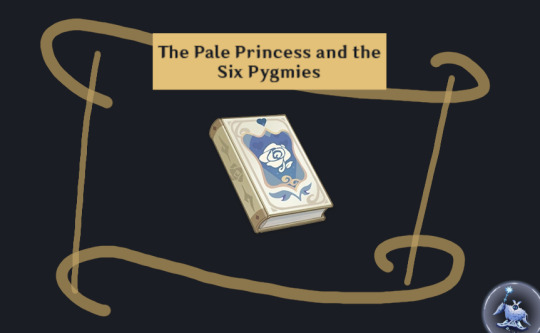
a short recap/analysis of 'the pale princess and the six pygmies'
i've been re-reading the in-game books and i'd like to remind you of / introduce you to the wonderful anomaly that is 'the pale princess and the six pygmies'!
BACKGROUND
it's the book that an abyss mage is trying to steal during lisa's quest (which is not optional!), claiming it held an important secret relevant to the abyss order; at first, everyone was kinda confused by it: why are they looking for a/that specific fairytale? yes, it could be real, but what's so special about it? WELL, after this most recent (3.3) archon quest we know why - fairytales can survive irminsul memory erasure!! so the story in this book is highly likely to be one of those parables like the one nahida tells
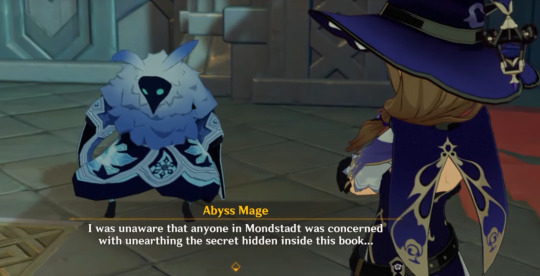
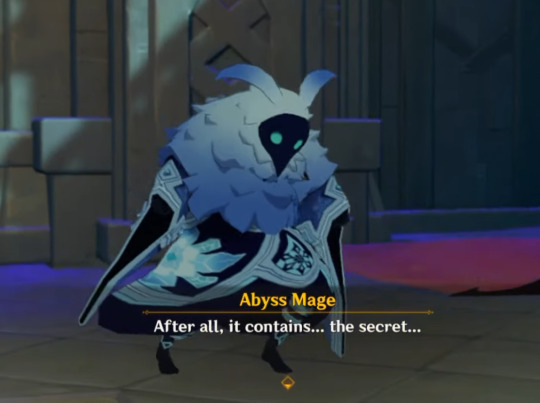
THE CONTENTS OF THE BOOK
the first (and only available) volume provides a character description: the Night Mother (with no heart and no mouth, sin incarnate) who rules over the Land of Night and the Pale Princess who rules over the Moonlight Forest (where pale, blonde, blue-eyed people lived)

the previews for the other volumes introduce the other characters:
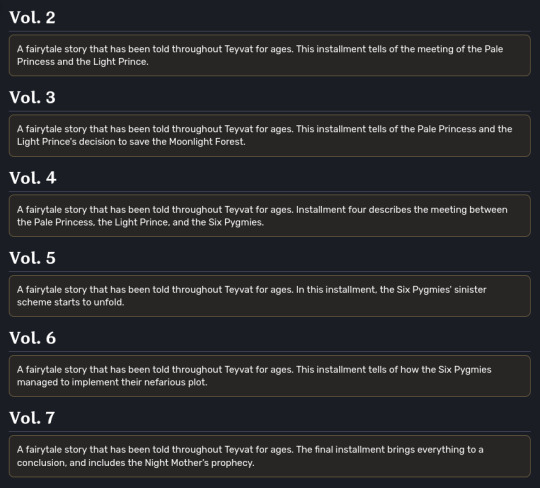
the Light Prince and the Six Pygmies. the former teams up with the Pale Princess to "*save* the Moonlight Forest". the pair then meets the six pygmies. however, the subsequent volumes insinuate that the pygmies are the antagonists/traitors - vol 5 describes the pygmies' plot as "sinister", and vol 6 describes their plot as "nefarious". this is a far cry from snow white and the 7 dwarves which the title seems to parallel (the dwarves weren't generally evil)

nevertheless, the "meeting" between the princess, prince and pygmies (vol. 4) seems to indicate an attempt at a truce. the last volume (vol 7) is just said to include the Night Mother's prophecy (which is most likely the main part relevant to the abyss order)


ANALYSES
NOW, there are so SO many analyses (and i'll cover some), but before I do I would like to point something out:
the fact that so many stories from vastly different periods could somehow fit this one story outline is VERY interesting, especially given the new context provided by the samsara quest, and the idea that "in this world, everything runs in a loop"
could this be the tale of the overall loop of teyvat?

anyways, i'll cover the following analyses in more or less detail:
the recent past
the current-ish events
the distant past
note on abbreviations: NM - the Night Mother, PP - the Pale Princess, LP - the Light Prince, 6P - the Six Pygmies, MF -the Moonlight Forest
NM - celestia*, PP - gold, 6P - archons, LP - ?albedo/dain/7th pygmy, MF - khaenriah
the Night Mother could be symbolizing Celestia. the best piece of evidence for this would be the quote "her punishments were always unexpected", which could be alluding to the celestial nails (at the same time, after a few of them you'd think they'd be more expected lol just don't make progress and try to know more than you should, and you should be good, ok? /j)


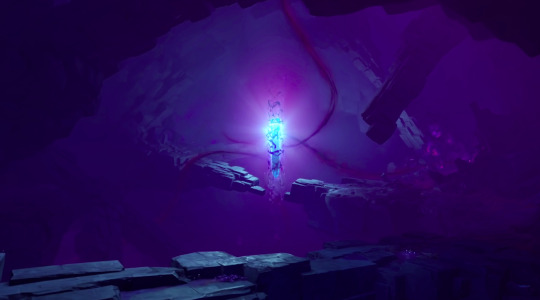
also! it has not been said that the night mother doesn't have eyes (unlike a mouth and a heart), which is interesting because visions have been described as "the heavens' eyes" by nahida
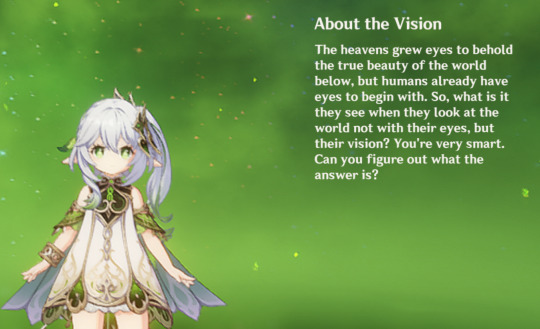
it is then possible that the moonlight forest could be Khaenri'ah. some evidence:
not ruled by the night mother (Khaenri'ah was said to be a goddless nation ruled by the people)
there was a "constant lack of sunlight" (Khaenri'ah was underground)
additionally, the following quote:
"The only thing she could not bear was the occasional ray of moonlight that made it through the clouds. The light that penetrated the walls of darkness always irritated her."
that light could represent human achievement / progress / arrogation, which we have repeatedly seen irks Celestia (most prominently in the case of Orobashi and Khaenri'ah)
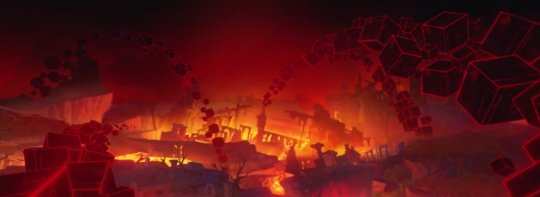
this would make the Pale Princess someone like rhinedottir/gold, a.k.a. albedo's creator, as a master of the Art of Khemia and Alchemy (which has been shown to possess the ability to create life)
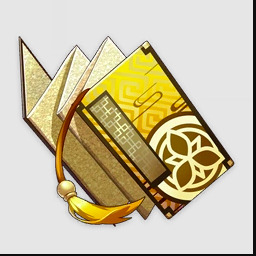
the Light Prince would then be someone who would be willing to help save Khaenriah, like dain or pierro or albedo (aether could also fit the description, especially after the most recent archon quest, but this wouldn't work for lumine so i'll discard it for the time being); alternatively it could be another Khaenrian (the king) or the 7th pygmy, but that means it would have to be either Venti or Zhongli (the only two male archons)
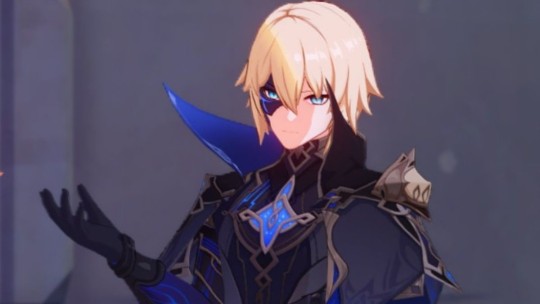
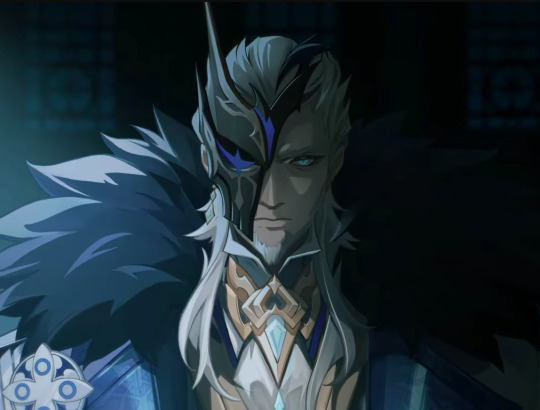
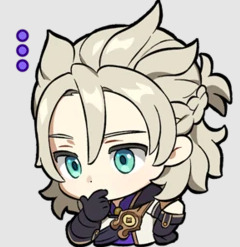
2. (the current-ish events) NM - ?; PP - 7th pygmy (tsaritsa?); LP - a khaenrian (pierro?); 6P - archons; MF - a nation (snezhnaya?)
the trouble here is the NM, bc Celestia does rule over the tsaritsa, so MF would be a part of the land of night, and i currently don't have an alternative
3. for the distant past it could be telling the story of the second who came and the seelie demise, and the seelies definitely match the description of the "light" inhabitants as well, so the LP could be the "master of the heavens" and the 6P would be the second who came (for some more "fall of the seelies" lore, please refer to this artifact set)
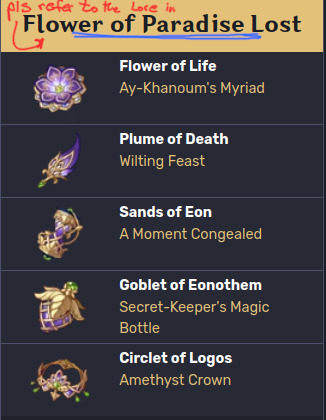
note that the analyses also heavily depend on how you answer the following questions:
are the Six Pygmies under the Night Mother's or the Pale Princess' juristiction, or are they independent entities? if so, which land are they native to?
is the light prince an inhabitant of the moonlight forest?
so, yeah, much to think about! (i also wanted to include a cross-referential analysis of the Night Mother/Pale Princess and Nottfriga/Madgalene from Hex & Hound, but dw we'll leave that for another day lol)
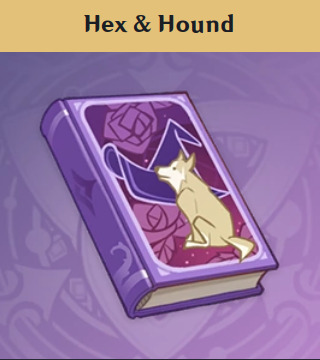
and that's a wrap!! that was a lot, and if you made it all the way here kudos to you, thanks for reading - here's a flower!
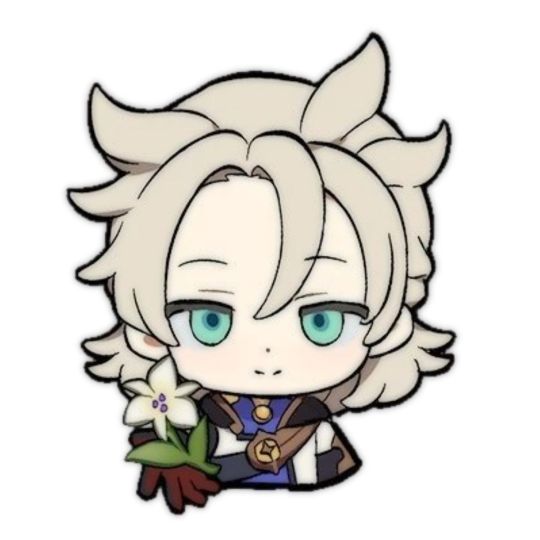
do let me know of any mistakes i made or any alternative analyses you enjoy!
[ more on my twitter @glazelilybloom ]
#genshin impact#genshin lore#genshin books#teyvat literature#the pale princess and the six pygmies#book analysis and recap#this was like a little schmoop take on this book lol#pp+6p#khaenriah lore#celestia lore#seelie lore#so much freaking lore i love it#ALSO i hope we get the other volumes in-game soon i want to read them and see how this parabola develops further!!!#原神#genshin analysis#genshintwt
23 notes
·
View notes
Text
ok they said they would send me the prompt sometime today but did not specify when so i am still in PREPARE FOR ANYTHING AND EVERYTHING mode. i finished the first-gen programming book on the plane. there were a handful of very good case studies in there & a few ideas i would love to try implementing, but i feel like those edited collections with a million contributors are inevitably a little uneven and can get a bit repetitive by the end. on the whole though i’m glad i read it and i collected a handful of sources from the bibliography that i’m going to follow up on next.
one of the last case studies in the book was about career services and i found it really interesting... the writers were pointing out that university career services tend to focus a lot on the process of finding a job (resume and cover letter writing, navigating linkedin and job boards, interviewing, etc.) but most institutions don’t do a ton of work on teaching students career management skills - like, how to read a job posting to determine if it’s going to get you where you want to be, or how to proactively identify and develop specific skills in a role even if it’s not your dream job, or how to go back on the job market and find a better match for you if a job doesn’t seem to be aligned with your long-term goals, etc etc. i definitely notice this a lot in my first-gen kids who i do post-grad career support stuff with. like, the jobs they choose to apply to often confuse me because they don’t seem like a good fit for what the student is actually interested in doing, or they’ll stay in a job that isn’t a good fit for too long because they’re unsure about how to make the transition.
we did some work on this in my program -- i had this career trajectory mapping activity where they had to research organizations in their areas of interest, then find a high- or medium-ranking employee there in a leadership position they might interested in doing later in their careers, and then we had this in-class activity where we used people’s linked in profiles to trace their path from college to grad school (if relevant) through the early stages of their career. we made these big maps on the board where we wrote down the job titles the person had held, the way they described their responsibilities in each role, the amount of time they spent at each, the amount of time between promotions, and whether their experience was concentrated in one organization/program or not (and if they moved around if it was laterally within a company or to a new organization). we did a handful of these together in class and then as part of their research portfolios that semester they had to create more maps, one of which had to be for a person they’d set up an informational interview with (so they could use the map to ask more detailed questions about people’s trajectories and get insight into how professionals further along in their careers made decisions about what jobs to take, when to leave, etc.).
ANYWAY i think i could do a LOT more thinking/brainstorming around how to integrate those skills in managing your own career into different curricula... just something i’d be interested in returning to. ooh and also i learned about the National Association of Colleges and Employers’ Career Readiness Competencies which i think will be a useful framework if i need to talk about prof dev at any point during the visit.
#teaching#mentoring#to think further#i've been thinking a lot about areas of transition where we don't have a lot of student support#like for example#first-year students have a ton of structured support & touchpoints with faculty/staff & organized social and academic programming etc#but then that typically falls away in sophomore year#and i think that's part of why students struggle a lot with the sophomore slump#and then i think another area of fall-off is like#students have access to a lot of career services & prof development resources + coaching + support during their senior years#as they're preparing to enter the workforce#but then obviously once they graduate#they're on their own#and i think that's something i'd be interested in thinking about - like specifically developing resources targeted at alumni#or even extending access to career support/coaching services for 1-2 years after graduation or something#or giving students access to those for a very low fee (maybe subsidized by some kind of grant)#idk just something i'm thinking about today!! instead of doing work work!
9 notes
·
View notes
Text
gideon the first was *redacted*
spoiler warning for the nona the ninth sneak peak but there is sooo much backstory for g1deon that's just too good to pass up
So, technically, this theory could alternatively apply to Pyrrha, but I am going off the idea that G1deon isn't actually gone. some part of him is still clinging onto his body and for some reason, they haven't told the others.
Gideon the First (or Pyrrha, if you're boring) was the head of the FBI pre-resurrection. Evidence is as follows:

This might be one of the most obvious pieces of evidence for whoever is speaking out of G1deon's body to have obviously been the head of the (Federal) Bureau (of Investigation). However, this is also the basis for my theory that Gideon isn't dead, is occasionally taking back control of his body, and perhaps even able to converse with Pyrrha. We know that any mention of eyes in this series is always meaningful, and it's so specific that "Pyrrha turned her eyes up to the ceiling." Why would TM make it a point to mention that? Perhaps because it's not Gideon's eyes (Pyrrha's soul) looking out, but Pyrrha's eyes (Gideon's soul). Additionally, "she didn't sound like she was addressing either of them," and, "This is the punishment she would have wanted for me. God, she must be pissing herself laughing," are both phrases that are referring to an unknown female character. Specifically that last bit, "she must be pissing herself laughing," stands out to me. The text doesn't say that she "WOULD" piss herself laughing, but that she "must" be. Implying that Gideon is in the driver's seat and that "she," meaning Pyrrha, is actually conscious and aware of their surroundings.

Evidence #2: Nona makes a very astute observation about Pyrrha's body language, which is quite impressive considering that
Pyrrha/Gideon has had 10,000 years as a professional secret-keeper to practice maintaining her poker face
Nona was "born" four months before she makes this observation. She JUST started interacting with and learning about other people, but can somehow read Pyrrha like a book. Except better than she can read a book. Because she's illiterate. MOVING ON
The last line here is also quite telling. "Wish I'd had you in the Bureau" makes perfect sense if said Bureau is the FBI. Mad skillz like Nona's would have made her such an asset.
"...but she didn't answer the question" is just the first time we hear about this specific behavior of Pyrrha's, leading us into...
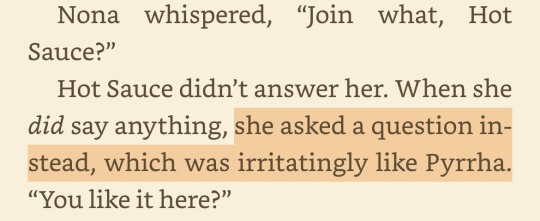
Hot Sauce deflecting Nona's question with another question. Idk about you but that sounds like interrogation tactics to me that's all.
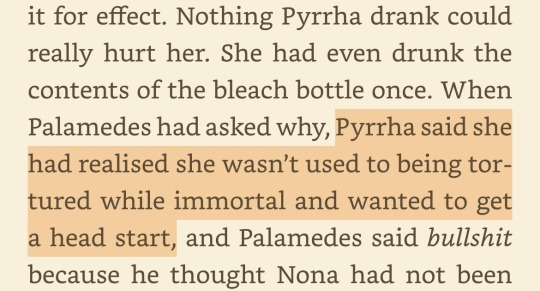
While we're on the topic of interrogation, this seems relevant. "While immortal" has some pretty serious implications. Obviously this should also be read within context and the understanding that Pyrrha is suffering and since alcohol doesn't do it for her and nothing could really hurt her anyway, why not chug bleach? I hope we get to see more of her vulnerabilities and how Gideon ascending to Lyctorhood and "losing" Pyrrha (who was more or less trapped for ten thousand years) and then Pyrrha "losing" Gideon to the RB at the end of HTN (but somehow his soul clings on enough to be able to come back??) has really put both of them through the wringer. Does BOE have any good therapists?

Unrelated to torture, I find it very interesting that Pyrrha has at least some degree of proficiency in eight languages. Why would she have needed to know that? Unless... She was part of an intelligence agency. In which case being able to listen to and understand (or at least get the gist of) conversations in other languages would have been pretty much a requirement for her job.
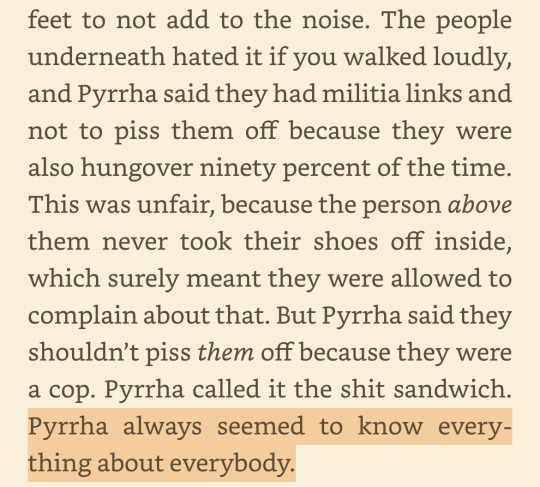
It's literally her job to know everything about everybody. That's all.
Bonus:
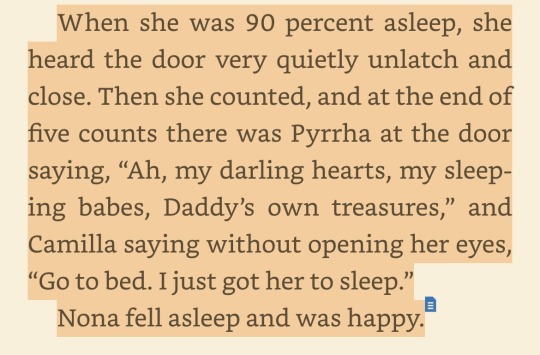
While I don't for a moment doubt that Pyrrha would call herself "daddy" (I would call her daddy too who are we kidding), I think there's still a chance this is G1deon talking through his own body while everyone else thinks it's Pyrrha talking through his body. Nona was very nearly in dreamland at this point and is relying on her sense of hearing to determine that it's Pyrrha at the door, so I think we can safely assume that her eyes are closed. Camilla didn't open her eyes, and so would not have been able to see if Pyrrha's eyes were the color she expected them to be. Maybe this isn't the strongest piece of evidence that Gideon survived, but it's cute and still worth mentioning.
#tlt#ntn#nona the ninth#ntn theories#ntn spoilers#tlt spoilers#gideon the first#pyrrha dve#the locked tomb#nona spoilers#the locked tomb spoilers#fbi open up
38 notes
·
View notes
Note
For the writing ask game: 2, 6, & 7 ^_^
Yay! An ask from the actual AUTHOR of The Happy Fic Writer Ask Game reblogged here, who is famous for also once, see question 13, guessing my TUA Masked Author submission by title alone!
So let's start with 2. Talk about a favorite comment you received.
I think the one that jumps out at me is from a "Guest" who I believe I've since come to know as "hc-silver" on the Summerland Discord, on "Two (or Three) Mutant Freaks and the Strictly Scholarly Collaboration":
"Your dedication to the interpersonal relationships shows; I would go as far as to say its your strong suit! The interactions are true to the characters and not contrived. For me it makes your work a pleasure to read."
That just gave me all the warm fuzzies! Such a genuine compliment about something I always try hardest to get right!
Runner-ups to Lovely_Number_7's "Reread this is amazing" on "On Soul Mates and Nemeses" because it's what it says on the tin-- someone is REREADING this because they think it's AMAZING; and to this guy in @destinyandcoins's reply to the aforementioned Masked Author submission "How to Catch Up with your Therapist after a Couple of…Busy Months":
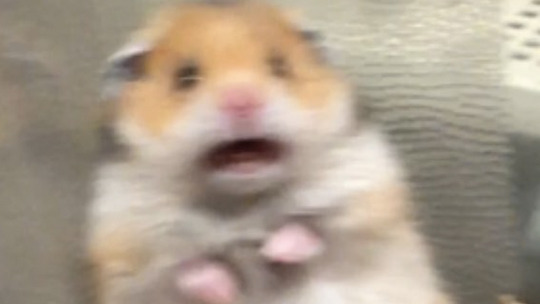
I just like looking at that guy, he makes me laugh.
6. Describe what you do and your feelings after posting a chapter.
Well. I link it in relevant social media locales, and then usually end up clicking through the link and rereading it immediately, just to get the experience of reading it like other people will be reading it. Then I refresh to see if anyone else has found it yet! They inevitably haven't, so I noodle around on the internet for awhile, then keep refreshing and/or checking gmail to see if anyone has commented yet! This probably still hasn't happened! But I keep doing it! Then the next morning at about 6:45 is when AO3 sends the "You've Got Kudos!" email notifications, so I attempt to keep my pants on until then. If no one has Kudoed it by that first morning, I get down, but then immediately start going through my other WIPs to decide which one is closest to being publishable so that I can hurry on to the NEXT source of potential validation!
7. What do you love most about being a fic writer for your fandom?
I don't know, I guess I just love playing with characters. It's like that scene in one of the Anne books, maybe Anne of Avonlea, where she's like "It's just a string of fancies! I enjoy writing such things, but editors insist on PLOTS!" which I have always identified with. It's ACCEPTABLE to write fanfic that's basically just "characters do stuff" without any world-stopping plot-building on my part!
Fandom-specifically, which the question seems to be leaning toward, I don't know, because I'm a multi-fandom writer anyway. Legion I am one of the ONLY writers for, so there I feel a bit, um, knowledgeable I guess? So, confident. But it makes me a little sad that "The Magic Man of Oz," possibly the coolest fic I have ever written, therefore has like no audience. And it also makes me sad that, being pretty much the only person in the fandom writing about the Summerland founders, I always have to write it in order to read it, which is why I requested it on the Yuletide exchange!
My fandom with the second-highest number of fics written (and highest number of fics READ), Umbrella Academy, I still feel kind of like the dork on the sidelines saying, "Hi, I'm here too!" And currently the only other fandom with more than one fic posted at all is the MCU, and two fics in the MCU, one of which is really more of a Wrinkle in Time fic anyway and which I swear has not been abandoned, is like one molecule of salt in the ocean.
I have been enjoying browsing all the requests for Yuletide, because there are so many ITTY BITTY fandoms that make me go wow, I never thought of fanfic for that, I can't wait to read it! One prompt was so brilliant I'm writing it as a Treat even though it's not my official assignment. My official assignment is actually for a fandom I was surprised is even eligible for Yuletide, but I'd better stop talking now. I'm very bad at writing surprises.
1 note
·
View note
Note
This is a coupon to ramble about your favorite character or oc as much as you want use it whenever
-gasp- The first ask and best ask I've gotten!
Okay, buckle up, because Hunter <333
(Open at your own risk-- I'm serious, it's LONG)
From a meta perspective, I just so appreciate the way his trauma has been handled thus far. I think there's so much to delve into and it's so relatable to different kinds of traumatic experiences and it's just... really accurate, and handled well, and I appreciate that so, so much. There's religious trauma aspects, power abuse, and familial trauma. You can definitely interpret him as experiencing other forms of neglect/abuse as well. And the main focus in-story is the psychological abuse he experiences, mental and emotional, and how messed up that is and how much it affects him. And that's something that's overlooked a lot, I think- how non-physical forms of abuse can be so, so damaging and harmful. (And DO NOT get me started on the fact that he's the YOUNGEST GUARD EVER because ig employee abuse wasn't working, so Belos was like what about CHILD ABUSE. What about taking advantage of the basic instinct of people to TRUST AND OBEY PARENTAL FIGURES?? And then he isolated Hunter so he couldn't go through the developmental phase of having a peer group and discovering his own identity?? I HATE HIM)
Speaking of trauma, his panic attacks? The way they were both handled, both in how they were shown on-screen and the way other characters handled them (Eda making sure not to crowd Luz and Hunter & Gus teaching Hunter deep breathing my beloveds <33) is just. really good?? Zeno Robinson's voice acting in both scenes (and in general) is literally so incredible, I hope one day to have but a portion of the skill he's cultivated.
Anyways, apart from the trauma part, he's just such a sweet and fun character. He's sassy and sarcastic and his Golden Guard vibe is just, perfection, and whenever he's on-screen as GG I know I'm gonna laugh and have a good time even when I'm rooting against him. He seriously has some of the best, most quotable lines in the show, and I quote several of them daily.
He's such a lil nerd, too. We know he likes reading, and he can ramble off relevant information on just about anything he runs into. I can't help but wonder if his part of his ease at talking to Flapjack in Hunting Palismen is because he's used to talking out loud to himself when no one's interested/he needs to think something through.
Similarly, he's really intelligent. Not just book-smart, but he's incredibly observant (notices when Eda & Luz were standing in a dangerous plant, picks up on the fact Luz won't shoot him, etc.) He's clever and resourceful, too, as well as physically capable. Honestly, he's just good at his job, and you gotta admire the hard work and dedication that took. Even if his job is, you know, helping Belos.
He obviously deeply cares about his uncle (and "the greater good," as he puts it), but Belos uses that to manipulate him. He definitely hurts people as the Golden Guard, and he says in Labyrinth Runners that it's because he thought he was doing good things for a good person, but it turns out neither of those was true. So to an extent, he thought he was doing good even when doing things he was uncomfortable with (read: giving Belos Palismen). He also threatens Luz and Eda in Separate Tides, but honestly I think he was bluffing? That doesn't make it a good thing, obviously, but I really do not think he would've killed them in cold blood like that, he was being The Golden Guard(TM).
Speaking of, his personality seems to shift quite a bit from The Golden Guard(TM) to Hunter, which makes me think that a lot of that confidence he exudes is a mindset that comes along with being the GG. Like, he puts on the mask and gets the staff and is like "Yeah, I can do this, I'm the Golden Guard. I'm the emperor's right hand man, I've got power and recognition, I'm freaking AWESOME" and that's how he carries himself. But I don't think that's always how he feels, especially when we see that any real confidence in himself comes directly from Belos' validation, such as in Eclipse Lake when he has a complete breakdown at the thought of failing and losing his Golden Guard title and Belos' approval. (Belos definitely made him think like that on purpose and takes advantage of it and I hate him for it so much.) Also, I think Hollow Mind showed pretty clearly that the only thing Hunter has full confidence in is Belos, which is why the reveal that he's actually just a little bitch was so world shattering to him, because that is literally the foundation of his worldview and what he'd lived his whole life on. (-cough-religious trauma-cough-)
It's also interesting (and sad) to note that even though when he's The Golden Guard(TM) he's all confident and snarky, outside of that persona he's not even confident in being the Golden Guard. I mean, Darius, who Hunter does not seem close to at all, makes one snide comment about how he doesn't deserve to be the GG and his entire attitude crumbles and he asks how he can prove himself. From this random coven head who's being a jerk and isn't even Belos! He immediately transforms into a kid who needs to justify his existence! Darius didn't even sound serious, he was just making something up, but Hunter clings to the mission like a lifeline! He just wants to feel like he deserves to exist, dammit!!
Honestly, throughout all of Any Sport in a Storm there are a lot of things about how he thinks you can pick up about him from implications, too! While it's played for comedy, his complete and total confidence in his approaches absolutely reeks of someone who has literally never been exposed to the outside world. Which makes Darius' line about making connections outside the castle hit even harder, because not only has he not interacted with people his age before, but he hasn't interacted with anyone not under Belos' thumb without being, you know, The Golden Guard(TM) and trying to defeat them. (Except Luz in Hunting Palismen, which just makes that episode so much more interesting.) Anyways, he very confidently and casually talks about the Emperor's Coven, and how it's obviously the Best, and how 6AM is a very late hour to wake up, etc. (-cough-abused kid who doesn't realize it vibes-cough-). But when presented with one (1) person who thinks the coven system is stupid, actually, he literally freaks out. I mean, he KNOWS wild witches are a thing, but those are evil and dangerous and of course they'd say insane things like that (i.e. he demonizes them and thus wouldn't listen to anything they said). But this kid, this is a normal person, who just. DISAGREES with Belos? WHAT? He doesn't even know where to start processing that, because he has never been exposed to it. And the way he so casually brings up the training and literally has NO idea that people would consider that cruel or harsh says something about his cluelessness about the world, but ALSO how he doesn't consider that anything he's gone through could be bad. He doesn't even go after the other Emerald Entrails until remembering their Palismen will be killed, because that IS something he considers bad (because Flapjack, and I LOVE his relationship with Flapjack-). And that's probably a mindset that applies to a lot more than just coven training.
He also has his whole powerless-witch insecurity, which is why I think being The Golden Guard(TM) and having people obey/respect him is probably great for his self-esteem. Kind of like it lets him set aside that insecurity and feel important/worth something. That could also explains his attachment to Belos' staff in Hunting Palismen; I think it's a bit more than the basic utility of it and the fact it's from Belos, I think it's also because when he has it he feels like he's basically a "full witch" since he can use magic. (And like, I know he probably doesn't think of it this way because magic is just a Necessity, but he did JUST fine without it the whole episode. He's resourceful and skilled as hell, he literally does not need magic to do things.) The whole Golden-Guard-means-power may be part of his fear in Eclipse Lake, too, that not only will he lose the approval of Belos (and therefore his self-worth) but he'll also lose the only thing that makes him more than "half a witch."
Speaking of which, I am in LOVE with the moment in Hollow Mind where once he's alone with Luz he whips out Flapjack. Because he's not as attached to the Emperor's staff- it's not his go-to anymore. Flapjack has come to mean so much to him and so as soon as he can use him he does. Flapjack is such a huge figure in his life, too. Their whole strangers to friends arc is simply to DIE for, it is literally so sweet and shows so many great aspects of Hunter's character. He believes Belos, that Palismen are made from wild magic and dangerous. More than that, Belos needs them to help with his "curse," and Hunter will do anything for Belos. He seems pretty uncomfortable with killing Palisman, but -Gothel voice- Belos knows best, so he probably just pushes that feeling aside. They're dangerous anyway, right? They're not sentient or anything, and Belos needs them...
Then enters Flapjack, who by the way was introduced as wanting to escape/be free, and then proceeded to follow Hunter around after he expressed his own wish for freedom from expectations and to choose his own path in life. Hunter is immediately like "NO. Wild magic BAD" but with Luz's help he seems to calm down a little. He still thinks Flapjack is dangerous, but at least not going to attack him. Then, after being shown genuine kindness/unconditional trust by Luz for possibly the first time in his life, he turns around and fights Kikimora, NOT knowing at first that she didn't know who he was, and then watches Luz fly away with the Palismen he was sent to collect. The FIRST thing he did in this episode was use his staff to teleport back onto the ship from super far waway, but he can't even try to follow her now? With the staff in hand?? No, he abandoned the mission on purpose, probably out of appreciation for Luz and his own doubts about how moral the mission really was. Need I remind you how much he cares about Belos?? He researches wild magic while thinking it could curse/kill him because he wants to cure his uncle. He isn't just going to abandon a mission and risk not only Belos' disapproval but also his wellbeing for NO REASON. (This makes Eclipse Lake sadder btw, if you think about how he intentionally failed his last mission and now he's ended up so desperate.)
Anyways, Flapjack goes back and is immediately like "I'm gonna go find that kid again, he seemed pretty cool." So he finds the castle (which couldn't have been easy; he's so dedicated <3), and Hunter (who was probably just chewed out for failing) grabs him because Palisman! That's what I'm supposed to get! But he squeezes him too hard, and Flapjack squeaks in pain. Hunter immediately loosens his grip and apologizes, then remembers why Belos wants the Palismen. His eagerness disappears and he warns Flapjack that it's dangerous to stay. And then Flapjack turns into a staff for him. It seems like Flapjack was sure that Hunter was a good person, and that last bit of kindness he revealed his staff form. Hunter is shown to be pretty selfless here, and really uncomfortable with the whole Palismen consuming thing.
In Palismen Observations, it's implied that Hunter had been feeding/watching Flapjack since the beginning. He's such a nerd, I love him ;-; He probably isn't sure how Palismen work (I sincerely doubt that Belos is upfront with that information) so he starts studying one on his own. Hunter is a curious lil NERD and he deserves all the happiness.
Anyways, in Eclipse Lake he's not super attached to Flapjack, but he doesn't seem too minded by his presence either. He even hits him with the "Go find a better witch to be with :(" after his breakdown, so if Flapjack didn't know he was Not Okay before he does now. And through the whole thing, Flapjack sticks with him and even jumps in the way to protect him from King and helps him get the key. It's only after that, when Hunter's a bit calmer, that he seems to really appreciate how much Flapjack's done for him. He finally accepts the Palisman bond, and Achievement Unlocked: Communication!
But that's not the end of it! In Palismen Observations you can see that Hunter's still holding onto that belief that Flapjack is dangerous. Yes, he's done nothing but be nice so far, BUT he's OBVIOUSLY finding something. After all, Palismen are made of wild magic and wild magic is dangerous. He know he asks around to find out what a flapjack is, so he was obviously actively looking for information. He asks Flapjack about his previous owner/life (and doesn't get much, but y'know). And he watches Flapjack and keeps track of all the things he likes doing (for research obviously!! I'm sure he doesn't actually care about him or anything).
But he must find out how to reconcile Evil Palisman with Best Birb, so he devises an experiment >:3 (because he's an adorable lil NERD). Instead of feeding Flapjack his usual food (still not over the fact he'd been feeding him this whole time T-T) he'll give him BAD food, and then Flapjack will TOTALLY show his dark side. (Which can be seen as him failing to give Flapjack what he wants and therefore incurring a rage-induced punishment, which kindaaa sounds like Belos's relationship to Hunter idk- I might be reading too much into that but yeah...) So he conducts his experience and finds... that Flapjack is just a lil sweetheard who shares his food anyway T-T And you can HEAR the guilt in Hunter's voice as he realizes that of course Flapjack wouldn't freak out at him, he's Flapjack. So he stops his research, because he has his answer. (Heehee, nerd <33)
From then on he's shown to be super close with Flapjack. Like, they're never seen apart. And in Hollow Mind and Any Sport in a Storm, he uses Flapjack when possible instead of Belos' staff. And, in Any Sport in a Storm, we see him with Flapjack the entire time, doing his usual planning-out-loud-to-the-bird thing (which I love. baby.) Flapjack is even in the picture of the Emerald Entrails where Hunter's smiling! And again, Hunter didn't go after his teammates because he was worried about the harsh training they'd go through, he goes after them after Steve points out that their Palismen will be taken from them. Because Flapjack is someone he cares deeply about, and it's only when Hunter can relate their situation to Flapjack being in danger that he realizes that it's messed up.
Speaking of, this is where Darius really enters the picture! And I really like how he pushed Hunter's arc, even if it may not have been entirely intentional (and he definitely didn't have a good attitude about it). I particularly like when Hunter takes the cape and asks if he deserves it now, if he's worthy enough, and Darius just asks if he thinks he is. It may have been just a snide remark meant to make him feel insecure, but it still pushes Hunter to think, and in a really good way. Because his whole life, all of his opinions and feelings and even thoughts have been dictated by an adult above him. He asks Darius if he's worthy now because he needs someone to tell him he is, because that's what decides if he is. And Darius basically says "what do you think?" And he does think, and he realizes that he, Hunter, doesn't actually want to take people against their will (and definitely not Palismen-).
Not only does he realize that, and come to his own conclusions without being told what to do, but not only he puts himself in danger (going against a coven head who's probably going to tell Belos) but he goes against everything that Belos had ever drilled into his head. He also doesn't even try to hide Flapjack in that scene, which is probably just him not thinking about it in his panic to stop Darius, but I think it also demonstrates how much he needs Flapjack there. Because he feels guilty, and he's upset, so of course Flapjack would be there because Flapjack is his comfort and support. (The fear on his face when Darius mentions Belos finding out hurts me deep within my soul ;-;)
Then the other Emerald Entrails get away, and Darius gets mad. And Hunter tenses up, fully expecting to get hit (T-T), not even trying to defend himself or justify it, but instead of a punishment, he gets affirmation. A bit of positive physical touch, which he might've been too in shock to process, and Darius telling him that he was wrong and Hunter is actually good. Not good because he succeeded, or useful, or obedient, but because he made the right decision by himself. And Darius gives him a scroll and gets him to make an account so he can interact with other kids his age, and then promises to keep both the incident and Flapjack a secret. Which is a positive response to him making his own moral decision (definitely NOT what he got last time he tried that, in Hunting Palismen) and like. YESSSSSS <33 Encourage that, Darius <3
And at the end of Hollow Mind and throughout Labyrinth Runners we can see how close they've become <3 (Hunter absolutely processed the events of Hollow Mind & his subsequent Grimwalker research by talking it through with Flapjack and Flapjack was his only source of comfort and it's only thing that got Hunter through all of that and you CANNOT and WILL NOT be changing my mind-)
Then there's Hollow Mind and Labyrinth Runners, which are whole OTHER things that are SO GOOD AND INTERESTING and I love SO MUCH but that's just... wayyy too much for this post haha (Just know I would die for his & Luz's sibling energy and his & Gus's friendship)
Anyways, I'll stop now, TL;DR: Hunter <;33
#anon i'm in love with you /platonic#i meant to answer this like two days ago and i literally just Forgot#I HAVE SO MANY THOUGHTS ABOUT HIM I LOVE HIM#i have sm more to say but i have to stop somewhere#he parallels like every other character there is SO MUCH#and i didn't even delve into headcanons much#i also probably forgot a bunch of moments/implications too#or misremembered them. hopefully not that one D:#this is over 3k words T-T#someone talk to me about hunter challenge#the owl house#toh spoilers#the owl house spoilers#hunter the golden guard#long post#VERY long post#i'm so sorry. (but no i'm not)#kay's asks#anon asks
27 notes
·
View notes
Text
more Candle. around chapter 78. bloody addictive, these webnovels lmao
i read up to the end of book 4 and a little beyond last night.
this book develops Joon and Fenn's relationship, and the adventure of the week sees them attempting to teach Joon 'soul magic', which turns out to give him access to his 'true character sheet', which lets things get pretty wild.
that comparison i made to Baru Cormorant? seems like it's going to continue to be relevant, because most of this chapter was about dealing with an adversary who can rewrite someone's motivations, particularly 'values', here understood as a list of discrete concepts assigned importance by various criteria. this not by a lifetime of indoctrination but a magic touch. so we have a book with our cast forced to regard each other with extreme paranoia - paranoia which proves entirely justified.
also first party death. even though resurrection is possible, it's not surprising that this leads to everyone becoming worse, short-tempered versions of themselves
now the author's rat background is becoming increasingly evident, although I don't think this is going to become a HPMOR-style propaganda piece - it's more that the pool of concepts he's playing with is, well, the sort of thing that gets discussed on Lesswrong. it's clear there is going to be some kind of 'AI risk'-type question implied in Joon's ability to fuck with his own values, and if the author continues to be pretty good at writing, I expect he's going to do his best to make Joon's likely slide to the dark side seem entirely justified in the narration the whole way.
oh yeah there's more sex going on now. the mc's hangups are conveyed pretty well. it's putting him in the middle of a harem plot, which is not universal but not uncommon in litrpg (something else we can probably blame on Sword Art Online). given how openly metafictional this story is, I assume it's going somewhere with that.
one thing briefly about the power fantasy here. when I was much younger I read about half of another massive webnovel, Fallout Equestria. it's not an especially good book and I wouldn't go out of your way unless you really like deranged pony fandom shit and specifically the kind of story where the bad guys do a lot of (often weirdly creative) sexual violence to show how bad they are. anyway, I'm reminded of that because the MC of that story gets a girlfriend who absolutely adores her, and the MC of course turns out to be the best at sex ever, so she's oh-so-embarrassingly overheard by the rest of the party. I'm sure there are other examples.
so the fantasy isn't exactly that you have a lot of sex with different people. it's that you're recognised by your peers as attractive (and good at sex), and you get a committed relationship with someone who's perfect for you. this happens through no special effort on your part.
harem anime and manga used to be a major subgenre, usually a comedy where a hapless bumbling male character ends up in an all girl environment by some contrivance and antics result. I can't comment too much on its usual story devices since, well, I never watched much of it beyond a small amount of Urusei Yatsura, and what I have is pretty far from the core of it. as far as I'm aware it's a subgenre that's basically dead and buried now, partly swallowed by the isekai wave and partly just tastes change
all the same, afaiu a core part of the genre is that the protagonist does not really pursue the girls - he's just a nice guy and everyone's got low enough self esteem that that's enough. the expected ending is that the protagonist will pick one of the girls and settle down.
by contrast, the type of male character who is having sex with multiple women is usually depicted as a brutish character, probably a rapist, overflowing with dangerous sexual energy - a demon in Berserk or many an 80s OVA for example. this is actually true even in reverse come to think of it - consider Zero of DoD3. (exceptions definitely come to mind, notably Naze Turbine in Gundam IBO, but that's more recent. it also seems less likely to apply this sort of frame to lesbians.)
so in a very stereotypical harem story the point isn't that you get loads of girls and have sex all the time. it's that you could do that but you don't, because you're a good boy who observes the cultural taboo against non-monogamy.
I expect this may get explicitly addressed in the story at some point, because among rationalists, polyamory is a lot more accepted or even a norm. right now we have the amusing idea of achievements intruding into sex scenes, and it seems like the game 'wants' Joon to be fucking all seven of his current and future companions. Joon doesn't like this, and I can only guess what the author is planning with this plot, although if this somehow ends up with Joon fucking the deer that will be goddamn hilarious.
anyway, moving on...
I've changed my mind about Arthur being the DM, or at least it now seems less likely than the ancestor sim angle. I now think this simulation was definitely built by Joon himself, much older, as a way to resurrect Arthur and give him a good life, but something went very wrong and activated Joon's ruthless DM tendencies, or maybe the only way Joon could get the resources to resurrect Arthur was by building his dream immersive MMO or something. in any case, I think pov!Joon is probably a version of admin!Joon inserted into the game in order to save Arthur. or maybe Arthur took control and is now doing to Joon what Joon did to him. AI gods are not my favourite trope, but I'll give it the benefit of the doubt, because I have no idea what modern ratfic is like.
(I kind of want Tiff to be involved in running the sim somehow, because to me she's the most interesting member of Joon's D&D group. seems unlikely right now, but I'd be glad to be proven wrong.)
the basic arc of litrpg is that a character goes from the bottom of the heap to the top. in accordance with conventional storytelling wisdom, the early part where a weak character survives by their wits tends to be the most fun. Wales has done a good job so far of maintaining tension - honestly so much of it that the death of this arc's fantasy-Mengele villain came as a serious relief, although as a character the queercoding was a bit much lmao (a lisp? seriously?).
but Joon getting the ability to fuck with his soooouuuullllll very directly seems like it's going to be a turning point, even if the 'soul' here definitely seems to be another abstraction; and given I'm not even at the halfway point of this behemoth, I'm curious what will happen if we finally move out of the reactive protagonist territory.
many lampshades have been hung on Joon's lack of a strong driving motivation, incidentally. the closest thing he has to a main goal is resurrecting Arthur, but that is more of a vague long term aspiration than a project that structures the story at large, and indeed, we now learn it officially ranks several rungs below Joon's devotion to his immediate companions. in RPG terms, the DM - the cosmic force of Narrative as the characters see it - is doing most of the work to structure the story, sending a series of threats and problems Joon's way to hook him into adventures; as an RPG player, Joon himself has given few 'flags' to help signal what he's interested in doing. ironically, while Joon seems like he'd be a great DM, he seems like he'd be a slightly frustrating player - although he'd probably give more to work with if he weren't playing 'himself'.
that Joon is a reactive type of protagonist is apparently important enough to call attention to in narration, although I can't guess where it's going with this choice. generally speaking that's seen as a writing flaw, and motivated protagonists are preferred, but this story is so eager to call attention to narrative devices and artifice that I feel like I must assume it's doing this for a reason. I'm just not sure what that reason is yet.
guh i promise I'm not going to be just blogging about this webnovel for a while. these webnovels really get their hooks into you in much the same way an actual game does, the chain of overlapping problems and solutions is a powerful thing.
3 notes
·
View notes
Text
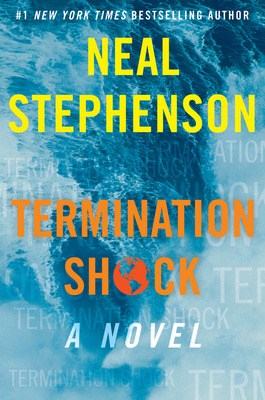
The Overwhelming Relevance of Neal Stephenson’s Termination Shock
The Overwhelming Relevance of Neal Stephenson’s Termination Shock
The Overwhelming Relevance of Neal Stephenson’s Termination Shock
Molly Templeton
Wed Dec 1, 2021 3:00pm
It’s hard to start anywhere but with the feral hogs.
Termination Shock, Neal Stephenson’s latest doorstopper (at just over 700 pages, it’s considerably shorter than his last few books), is a sprawling, truly global story. It would be foolish to expect anything else from Stephenson, whose novels regularly involve the minutiae of an endlessly surprising array of topics. To read him is to accept that you’re not just going to be told a story; you’re going to be educated. Often, it’s about something fascinating. How much time did I spend distracted by the Wikipedia page about the Maeslantkering, which plays a role in the novel? Let’s not talk about that.
Sometimes it is less engrossing. Termination Shock is the length of approximately three shorter books, and the first of those is almost 300 pages of warmup to one of the novel’s central concepts: In the Texas desert, a quirky billionaire has set up a massive geoengineering project. In the meticulous process of detailing this, Stephenson digs into the personal history of an aide to the queen of the Netherlands; explains how, about 10 years from now, fire ants and supply chain issues have driven many Texans from their homes; and gives the backstory of a man named Rufus, who has a beef with one of those feral hogs. All told, there are, in the book, more than 30 to 50 of them.
If you are a person on the internet, you will immediately interpret this plot point as Stephenson making it quite clear that feral hogs really are a threat. If you’re not familiar with the tweet that became a meme, it’s just another Stephenson subplot, a chance to explain to us the ecosystem of Houston in about 10 years, where temperatures are regularly in the 110s, people have to wear earthsuits to stay cool, and Rufus’s white whale, a feral hog nicknamed Snout, is taken out by a jet flown by the queen of the Netherlands.
Said queen, who has four names but goes by Saskia for most of the book, is in Texas to attend a secret mini-summit organized by the aforementioned billionaire, T.R. Schmidt aka T.R. McHooligan, owner of a chain of truck stops. T.R. invites some old money from Venice, the lord mayor of London, and a host of other folks. He does not invite the Chinese, who bring this omission up to Willem, Saskia’s Indo-Dutch aide. He also does not invite anyone from India, the repercussions of which take some time to become clear.
The novel’s plot radiates outward from here: from a series of invitations, incidents, and demonstrations, complete with complex and lengthy explanations. These explanations often come in the form of slightly forced-sounding dialogue, and when they don’t, Stephenson frequently begins sentences with “So,” or “Anyway,” as if he’s just picking up the thread of a dinner conversation after a brief interruption. And even when the book starts to drag, we listen. Despite his long asides and in-depth sidebar topics, Stephenson has never been anything but compulsively readable.
But Termination Shock is a bit of a challenge all the same. The pace is glitchy, ponderous at first and occasionally zipping past interesting parts or characters (a gaggle of falconers, a trio of young women who seem mostly to exist to break up the boys’ club vibes of one subplot). For most of the book, it’s entirely unclear what Laks—an Indian-Canadian practitioner of the martial art of gatka who goes to India to help with the COVID crisis and winds up doing something very different—has to do with the rest of the story. If you trust Stephenson, you know it’s all going to come together somehow. But you may begin to wonder when.
While I was reading it, despite my frustration with the pace and the sometimes stilted characters, Termination Shock felt like it took over my brain. I could not break up my reading with other books. I could hardly even sustain thoughts about things that were not the book, or the many things I wound up reading about because of the book. When I was done, I watched a screener of an upcoming documentary called Burning, about the catastrophic fires that Australia faced two years ago. It’s about global warming. It seemed relevant to the novel. I sobbed through the entire thing.
I bring this up because I don’t know how to take in a story like this, how to accept the scale of it, the relation to reality, without feeling overwhelmed. Termination Shock bills itself as a techno-thriller, but it’s more of a thought experiment: What would happen if someone rich enough and brazen enough simply did something about one part of the climate crisis? T.R.’s scheme is not a solution, but it’s a step. He does not ask if he can take it. He accepts it is an imperfect option and he does it anyway. (He might as well wear a belt buckle that says “the perfect is the enemy of the done.”) The title comes from the idea that there are some things that, once begun, are more dangerous to stop than to continue. What happens if someone starts?
Termination Shock is very vivid about a lot of things, and one of them is that what is good for one part of the globe may be very bad for another. The scale of the crisis is the scale of this book: world-spanning, sprawling, infuriating, and something we can’t look away from. It makes sense that the novel is the way it is, that it gets under my skin even when I’m annoyed at the details or the oddly plodding action sequences of the conclusion. Maybe it needs to be uncomfortable and imperfect. Maybe it just has to make us think about something nearer than the future of Seveneves, more monumental even than the story told in Stephenson’s Baroque Cycle.
One scene stays with me more than any other. A Dutch beach is overwhelmed with a baffling natural phenomenon. The disaster is both personal and national, and Saskia has to respond in many ways at once, even as the trauma scales up. Her every action is watched, her feelings muted; Willem explains how this is the kind of moment when he has to be cold-blooded to do his job. Stephenson never lets us look away, but never slips into disaster porn. What is required of Saskia is what he delivers: a perfect mix of devastation, pragmatism, and image management. It feels like it could happen tomorrow. It probably will. And desperately hoping it won’t is simply not enough.
3 notes
·
View notes
Text
More reviewing
It's been quite a long while (I lost my glasses for about a month when our luggage got lost in the airport, so that excuses it a bit), but I finally read the next book on my list of Disney's Twisted Tales series books to read. This time it was "So This is Love" by Elizabeth Lim (though for some reason the first pages of the Finnish copy I got from library claim it was written by Liz Braswell, can't remember if it was correct elsewhere in the book, I took a photo only of this one page).
Anyway, there's not much that would make me rant about this book, it was the most competent out of the ones (so, just 3) I've read so far. The only noticeable (or one that stuck out to me for a bit longer to remember it) translation error for me was how at one point Cinderella was talking about how her dog got the name Bruno because of his brown coat, but it was translated as one would "jacket", so it confused me for a bit like "Wait, who is she talking about now?/Why would a dog wear a jacket?" until I realized that she meant his fur.
The only real plot relevant thing that annoyed me was the fact that in this book Prince Charming was given the name Charles... Like, Prince Charles. Uuuggh, did you have to?
Of course, there was also this one small thing in the story I really liked about how one of the reasons why
SPOILER WARNING
magic is prohibited in the Kingdom was because people feared fairies as there was a chance that an evil one could come over and curse newborn royal or noble children, it felt like a little nod to Sleeping Beauty and Maleficent.
There was also this thing that felt to me like it was probably caused by translation but I'm not sure, as whenever someone was discussing fairies, they only referred to them as female (the Fairy Godmother refers the sex of the fairy in the "godmother" part, but in Finnish the Fairy Godmother is called Haltijatarkummi, in which the sex is referred in the the "fairy" part, and the book kept using the world "haltijatar" (haltija "fairy/elf" (though also "owner/possessor", if you want a word that means just the magical beings, it should be "haltia" without the "j") with the "-tar/-tär" suffix which is similar to "-ess" or "-ette")). I'm assuming that in the original English version of this book this was not the case, but it's not that big a deal, just something that I found strange.
Also of note is that while these books are written as "what if" stories in which some small detail derails the rest of the story to new rails, in this one it was more like it followed the rails of the world changing aspect that I've noticed in these books, which is to de-anthropomorphize the animals from the Disney sidekick "human level intelligence" to "possibly only slightly more clever/aware than a regular animal" (this was also present in "A Whole New World", not so much in "Conceal, Don't Feel", though that might be because in that book Sven was the only animal sidekick, and he had already way more reduced anthropomorphing going on in the movie to begin with). Cinderella wasn't able to get out of the attic and try on the glass slipper because the mice didn't bring her the key to open the door like they did in the original 2D animated movie. It's also pretty curious how this story of "What if" is placing the moment of converging at the same moment as Cinderella 3: a Twist in Time (a good movie, recommend watching), yet the plots are very different (Though there were a few moments/scenes that made me wonder if the author had been somewhat inspired by that sequel. So far these books seem to consider only the movie they are based on itself as canon and any complimentary material is disregarded for the most part, maybe given a nod at most if the author is aware of them (in "A Whole New World" Aladdin's father's name is Cassim like in the King of Thieves, but on the other hand there were things that were contradictory with the Animated TV show, and in the latest book I'm currently reading "What Once was Mine" based on Tangled, it seems like the "twist" in this book was heavily influenced by "Rapunzel's Tangled Adventure"))
Anyhow, looks like I had some ranting (well, more like musing I guess...) to write after all. Also it seems I was a bit off last time when I said these books are targeted to 5th graders, though when I checked what the age demographic for them was when I was writing up my review for the last book Google said 9-13 year olds, but when I just now did that again it now says 12+... ¯\_(ツ)_/¯ Oh well...
1 note
·
View note
Video
youtube
Little chick - Original video by Mindia
they literally believe or at least attest to the idea that the god of the old testament is literally blind, and also a kind of devil, but the devil is actually jesus christ, and they know this because of the bible that says the opposite of all this and a bunch more scrolls from thousands of years ago that just so happened to be found in some pots in a cave in the last hundred years by a boy who radomly through a rock at some patshards and some shcizo rambling from albert pike. its bullshit, its the most bullshit thing thats ever existed, i read both the nag hammid libraries and the other one the dead see scrolls, i wasnt convinced, it was close! it was close i can see how one might be tricked, especially if they had previously sucked cock and were looking for some convincing sounding cope. life is actually good, the god who made it is good, the parts he made are good anyway, the parts your father made are ass and thats the parts everyone points to when they talk about the fucking demiurge. nature is sometimes brutal, but most of the time its mild and serene, its the people.
more than anything they hate me for this shit, this is how they get the goyim to do their bidding btw, what you thought they let them become full blooded jews? no they get the lion snake cope.
what are the odds btw of a pot sitting in a cave undiscovered, unburied, and unbroken for two thousand years? the odds are fucking zero. the bible is the book, everything else is cope, the jewish religion didnt come first, they dont follow the old testament but the talmud which is the written version of the oral tradition of the pharisees which the god of the old testament despised. the talmud was not written until 800 ad at the latest or until this argument catches on and some fucking goatherder stumbles on a trillion year old pot in a cave. let me say it again, Christianity is the original, they will spread all kinds of lies to make it seem like no its an amalgamation of early canaanite pantheons, etc etc. the bible was the first of its kind, and the prophesies recorded in that book written two thousand years ago are true today, christ was hitler before hitler, kanye before kanye, calling them out to their faces, how incredible that a book from 2000 years ago not only manages to be relevant but EDGY? its no coincidence, if earth were a fantasy realm that you were reading about called Gorn, and there was a 2000 year old book in this universe called the cryble, and the prophesies lined up from that book as well as the bible does in our universe there would be no doubt in your mind it was divinely inspired and probably tied to the mainplot of the game you were playing.
god is not blind you are. blinded by the pride of your own understanding, hey ive been there too. i dont want to be in your fag club or in any fag club, i prefer my own company and always have, god walks with me, and your time is coming to an end. repent means in its most literal sense, to change your mind.
im not a catholic, dont take my constant crusade against liars to be a call for your personal repentance, i obviously have a pillar of salt in my own eye. it is really the liars, im nice to gay people in my day to day and trans and whatever. not because im scared of retribution but because i love them deeply. not because they are gay but in spite of it, just like they love me in spite of my wrath. i cannot love a lie and claim to love my brothers, if my brother walks down the road and is heading towards a concealed pit trap meant for wild game and i do not warn my brother do i love him? does it make a difference or not if i the day before fell in that very same trap? does it make me a hypocrite?
0 notes